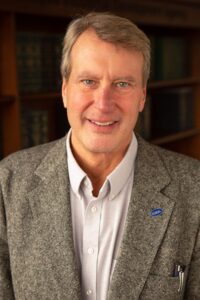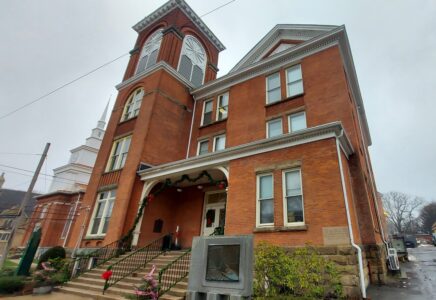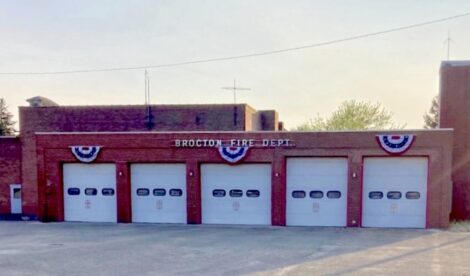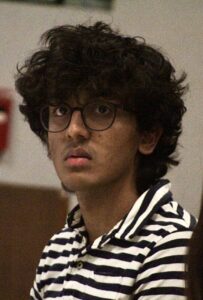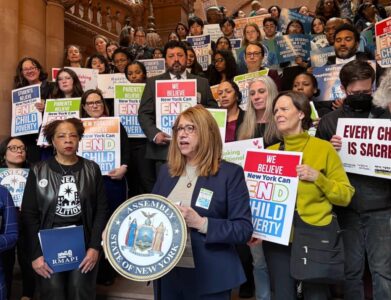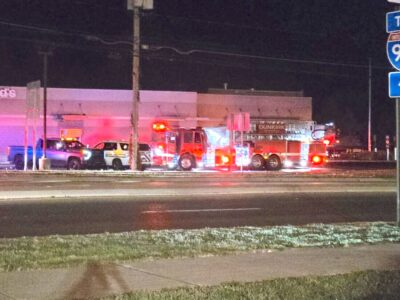Waller sees progress as ‘struggle’ continues

Pastor Early G. Waller
Editor’s note: This is the first of a series of articles in honor of Black History Month.
As struggles roil between the African American and caucasion communities in the United States, several individuals stand poised to continue fettering out unity and hope — especially in such divisive times.
One individual who continues to stand for this is Pastor Early G. Waller, a man who’s been a pillar of community, strength and compassion in the Dunkirk-Fredonia area for nearly 60 years.
“My home is in Okolona, Miss. I was born there in 1944,” Waller began his discussion with the OBSERVER. “I left there just as Dr. (Martin Luther) King Jr. and them were moving into Birmingham, 1962. That was the year that I came into Dunkirk.
Waller attended an all-black school while growing up. His classmates there used textbooks that all-white schools had used the year before. Tired of life down South, he began looking for a change and was sent a bus ticket in the mail by his uncle, Dave Gates, who was already a resident in Dunkirk, Waller soon left home fresh out of high school.
“I was looking for a better life. Down there I was right out of school, there were no jobs or anything, so I came here,” Waller noted. “I had an uncle that lived here. I was the first one out of my immediate family to come up here.”
A year later, he met his future wife Betty and the couple married in 1965 and began raising a family of four boys — Ricky, Douglas, Earlie and Jason.
Waller went on to work at Red Wing before becoming a truck driver for A. Sam & Sons. After that, he went to work for Dunkirk Radiator and then to AL Tech Specialty Steel where he was one of only two black employees. He retired from there after 30 years.
When asked about his church life, Waller spoke of fond memories as a child going to Sunday school and picnics within his community.
“I have been involved with church all my life. Down South my parents always made sure that we were in church and Sunday School,” he said. “I’ve been involved in church for the greatest portion of my life.”
He became a deacon in the early ’60s at Friendship Missionary Baptist Church then under the guidance of Pastor E.B. Barnes and through Bible correspondence courses out of Buffalo. Waller became an ordained minister and then became pastor in 1989.
“Talking with other pastors, we find that with COVID that a lot of the churches, the attendance is low and some people use it as an excuse to be absent from the church,” Waller said. “Some people look for a reason. It’s been good and the Lord has blessed us in spite of this. There’s some churches that have been closed and we’re still open.”
In his spare time, Waller enjoys fishing and watching sports, particularly the Buffalo Bills. He and his wife also enjoy traveling and have been all over the United States as well as to Germany when one of their sons was stationed there in the military.
As a young man, Waller became involved in the local chapter of the National Advancement Association of Colored People (NAACP), where problems in Dunkirk regarding its black citizens came to light for him. Waller eventually ran for chapter president and won. The group then began meeting with businesses throughout the city to get more jobs for black men and women at places such as Purina, which had only one black employee.
Under Waller’s leadership, the NAACP chapter received multiple awards including the Effie Gordon Award for Excellence in Achievement and the NAACP Thalheimer Award for Outstanding Program Activities, which was presented at the NAACP annual conference.
When asked about the problems facing the black community in these times, Waller stated that “we have come a long way.”
“When we look at situations in these times and the world that we are living in now and we look at all the diversity among blacks and whites, we find that we still have a long way to go.”
Waller soon mentioned the disparity in COVID vaccinations being received between black and white communities. He said situations like that show the diversity among the races.
“Even in our local community, we see how much diversity there is among the races,” Waller said. “I do believe that some of it has to do with the fact that we don’t have a Martin Luther King Jr. now. We don’t have that individual and I think that it shows. When we fail to be able to stand and measure up, we show how diversity can take place and we see a lot of that today, even in our local colored communities. There’s just certain things that are missing and it makes a big difference. We’ve come a long way, but we haven’t by no means, reached the motto of being treated the same on every level; we have to continue the struggle.”

